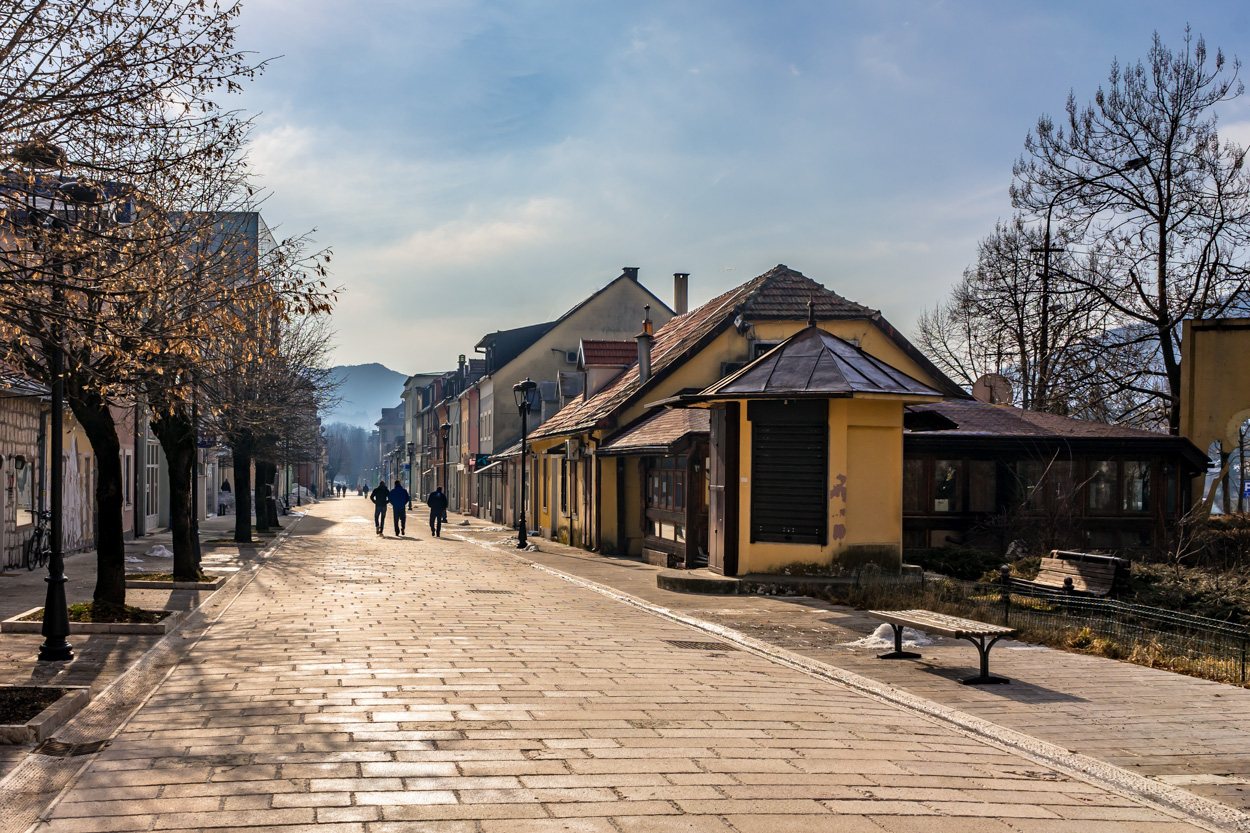Cetinje: Place with a Past
For some 470 years, Cetinje (Tsetinye) was the capital city of Montenegro. It was the center of political power, religious influence, and culture. This position of previous influence is visible today in the multiple remaining embassy structures that have been converted to other uses, the National Museum, the Royal Palace and the Biljarda (Bilyarda). This 25-room structure was an attempt by Njegoš, the national hero from the 19th century, to show the west that Montenegro was civilized.

In the heart of the city is the Vlaška Church. In front of this Serbian-Orthodox Church is a statue of a white angel or fairy–Lovćenska Vila. The piece by Risto Stijović, is a memorial for a group of Montenegrin immigrants who were trying to return to their country in 1915 to help in the country’s fight against the Austro-Hungarian empire during the first world war. Their ship sank and most of the men drowned in the Medovski Bay. Of the 500 on the ship, only 164 made it back to Montenegro. Today, the white angel symbolizes the freedom of the Montenegrin people–an ideal so strong for these men they were willing to come back and face danger to fight for their mother country. With a sword in the right hand and laurel in the left, the angel represents the strength and willingness to fight as well as a desire for peace among the Montenegrin people. The statue looks toward Lovćen, which, in turn, looks out over the sea. She is a connection between this former capital city and these men who lost their lives at sea because of their love for their homeland.
In 1945, the capital city was transferred from Cetinje to Podgorica–which was called Titograd when Yugoslavia was on the global map. At that time, city leaders led Cetinje toward developing industrial ventures. These ventures did not meet with the success that was hoped for and there was a decline in the arts, beauty, and financial well-being of the city. Today, the cultural heritage is being re-emphasized and the city is in the early stages of a rebirth.
Cetinje still has a place of prominence in the country because of its past. The president has a residence there. It has been the location of a number of important international gatherings. Also, there are festivals throughout the year in the city re-emphasizing the art and culture of the city, the country, and the Balkans.
CetinjeMontenegro